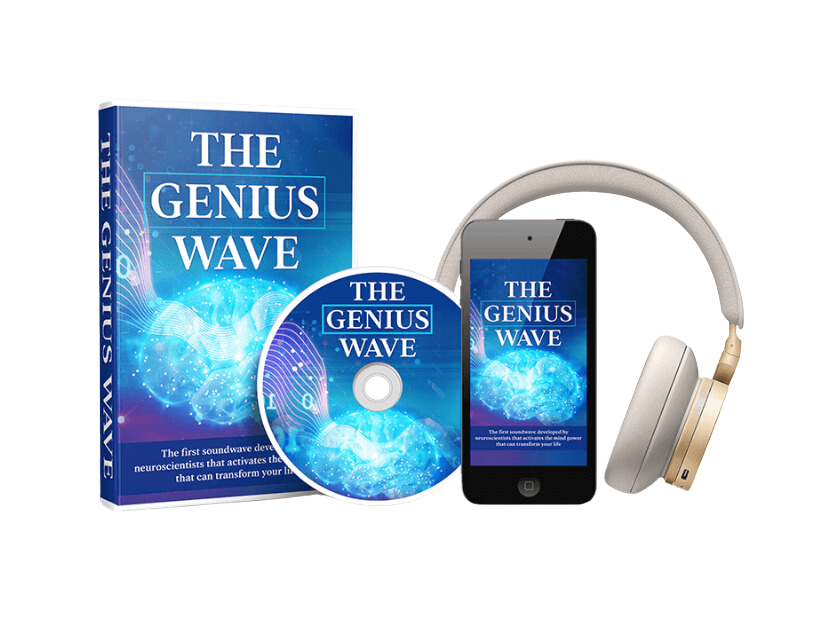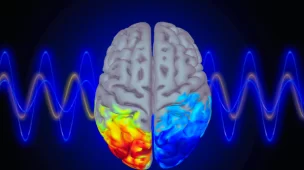In our fast-paced world, brimming with distractions and stress, finding a moment of peace can seem almost impossible. This is where meditation—a profound, yet simple practice—comes in. Originating from ancient traditions, meditation has evolved into a key tool for maintaining mental wellness and enhancing overall quality of life in the modern era.
Whether you’re a complete beginner curious about how to start or someone familiar with meditation looking to deepen your practice, this guide offers a detailed overview. We’ll explore the significant health benefits meditation provides, hear from renowned figures like Joe Dispenza, and walk through beginner-friendly techniques to integrate meditation into your daily routine effectively.
By the end of this post, you’ll understand why millions globally swear by this transformative practice and how you can harness its benefits to dramatically improve your physical, mental, and emotional health.
What is Meditation?
Meditation Definition
At its core, meditation is a practice intended to heighten awareness and provide a sense of calm and balance which can benefit both emotional well-being and overall health. Essentially, it involves the focusing of the mind on a particular object, thought, or activity to achieve a mentally clear and emotionally calm state. This practice is often used to reduce stress, enhance concentration, and promote a greater sense of peace.
Types of Meditation
While there are many types of meditation, they all share the same essence of mindfulness and focus:
- Mindfulness Meditation: Based on being mindful, or having an increased awareness and acceptance of living in the present moment. You observe your thoughts and feelings but let them pass without judgment.
- Transcendental Meditation: Involves chanting or using a mantra, and is practiced for 15–20 minutes twice per day while sitting comfortably with closed eyes.
- Guided Meditation: Often led by a guide or teacher, this involves forming mental images of places or situations you find relaxing.
- Zen Meditation (Zazen): A form of seated meditation that is part of Buddhist practice, focusing on breath and observing the thoughts that arise without attachment.
- Yoga Meditation (Yogic): Utilizes a range of bodily postures and breathing exercises along with meditation to achieve improved health and relaxation.
Historical Overview
Meditation is rooted in the religious context within numerous ancient religions, notably within Eastern practices including Hinduism and Buddhism. It began as a method to deepen understanding of the sacred and mystical forces of life. However, meditation is not exclusive to any one culture or religious group. Over thousands of years, it has branched out globally and has been adapted in many forms across different cultures.
Initially, meditation was meant to help deepen understanding of the sacred and mystical forces of life. In modern times, it is often used for relaxation and stress reduction. The practice has gained widespread popularity in the Western world over the last several decades, particularly with the rise in mindfulness and wellness movements.
Purpose and Practice
Meditation can be done while sitting, standing, walking, or in other positions. The key is a posture that is comfortable and provides good balance. Practices vary widely, involving rituals and different meditative techniques that require specific mental skills. It is common for meditators to start with short periods of 10 minutes or so per day. As one practices regularly, it becomes easier to keep the mind focused and the meditative state can last longer.
Meditation encourages a heightened state of awareness and focused attention. Various studies have shown that regular meditation can help reduce stress, control anxiety, promote emotional health, enhance self-awareness, lengthen attention span, and much more. Whether you are seeking spiritual growth, emotional healing, or relaxation, meditation offers profound benefits that touch all aspects of your conscious being.
Benefits of Meditation
Meditation is more than just a way to calm the mind after a long day. It’s a complex cognitive practice that can impact virtually every system in your body. Let’s explore how this practice can enhance your physical, mental, and emotional health.
Physical Benefits
- Reduces Stress: Stress reduction is one of the most common reasons people try meditation. The practice decreases the production of stress-related chemicals like cortisol and increases the production of mood-enhancing chemicals like serotonin.
- Enhances Sleep: Meditation can help calm the mind and body, easing into a deeper sleep. It can also help combat insomnia by allowing you to let go of the day’s tensions and enter a peaceful state of mind.
- Lowers Blood Pressure: Regular meditation can lead to physiological changes that are beneficial to heart health, including reduced strain on the heart and arteries, thus lowering the risk of heart disease.
- Boosts Immune System: By reducing stress and promoting relaxation, meditation can improve your body’s resistance to infections and disease.
Mental Benefits
- Improves Focus and Concentration: Meditation helps increase the strength and endurance of your attention. Regular practitioners often report improved abilities to multitask, increased memory, and faster processing speeds.
- Reduces Anxiety: Less stress translates to less anxiety. Meditation helps reduce symptoms of anxiety disorders, including phobias, social anxiety, paranoid thoughts, obsessive-compulsive behaviors, and panic attacks.
- Enhances Emotional Health: Some forms of meditation can lead to an improved self-image and a more positive outlook on life. By focusing on the moment and alleviating chronic stress, individuals can enhance their emotional resilience.
- Fosters Creativity: Open-monitoring meditation, where the practitioner observes all thoughts and sensations without attachment, can enhance problem-solving skills and boost creativity.
Emotional Benefits
- Increases Self-Awareness: Some forms of meditation teach you to recognize thoughts that may be harmful or self-defeating. The idea is to gain an awareness of such thoughts and reduce their occurrence.
- Cultivates Willpower: Streamlined focus and increased self-awareness aid in enhancing discipline in other areas of life. Meditation can help build mental muscle to avoid distractions, which is crucial in achieving long-term goals.
- Improves Patience and Tolerance: Meditation involves observing and letting go of the clinging to thoughts and feelings. This practice helps develop patience and the ability to tolerate stress and adversity more effectively.
Spiritual Benefits
- Deepens Sense of Connection: Meditation can enhance a sense of connectedness with one’s self, others, and the larger world. This enhanced connectivity can be spiritually uplifting and provide a sense of purpose.
- Enhances Peace of Mind: Spiritual meditation can help people discover or reconfirm their values, finding inner peace and facilitating a greater understanding of life’s purpose.
Insights from Experts
Meditation is not just practiced by individuals around the world, but it’s also backed by various prominent health experts and scientists, including neuroscientists and psychologists who testify to its benefits. Below, we highlight some significant expert insights, focusing notably on Dr. Joe Dispenza, among others.
Joe Dispenza’s Insights
- Rewiring Your Brain: Dr. Joe Dispenza, a renowned lecturer and author, discusses how meditation can help us understand our own mind and make measurable changes in our brain. He emphasizes that regular meditation can “rewire” the brain and potentially alter one’s genetic destiny.
- Enhancing the Mind-Body Connection: According to Dispenza, meditation improves the mind-body connection and can contribute to the longevity of life. He argues that by changing one’s thought patterns, one can reduce or even reverse stress-related damage to the body.
- Manifesting Change: He also speaks about the ability to use meditation to manifest changes in various aspects of one’s life, including health, career, and relationships. Through meditation, individuals can think more clearly, make better decisions, and more effectively manifest their desires.
Other Expert Opinions
- Deepak Chopra: A world leader in the field of mind-body medicine, Deepak Chopra contends that meditation is among the most effective forms of stress reduction. Chopra has authored numerous books where he outlines the spiritual and health benefits of meditation and how it can be used to attain a state of perfect health.
- Thich Nhat Hanh: Vietnamese monk and global spiritual leader, Thich Nhat Hanh, emphasizes the peace and joy that meditation can bring into one’s life. He teaches mindfulness meditation which helps people to be present in the moment and live a fuller life.
- Sharon Salzberg: A central figure in the field of meditation, a co-founder of the Insight Meditation Society in the US, and the author of several books, Sharon Salzberg advocates meditation as a means to foster better relationships through increased empathy and compassion.
How to Meditate
Meditation is a versatile practice, adaptable to many lifestyles and situations. Whether you have five minutes in the morning or a dedicated 30-minute slot in your evening routine, the key is consistency. Here’s how to get started with meditation:
Basic Techniques
- Focused Attention Meditation: This is one of the easiest methods to learn and can be very effective. Begin by focusing your attention on a single point. This could involve watching your breath, repeating a single word or mantra, staring at a candle flame, listening to a repetitive sound, or counting beads on a mala. Focusing the mind is challenging, so don’t be discouraged if you find that your thoughts wander quickly. The practice lies in bringing your attention back to your focus point whenever you notice the drift.
- Body Scan Meditation: This technique involves concentrating on different parts of the body. Start at your feet and work your way up, but instead of tensing and relaxing your muscles, simply focus on the feel of each part of your body.
- Mindfulness Meditation: This practice involves being mindful, present in the moment, and aware of where we are and what we’re doing, without overly reacting or being overwhelmed by what’s going on around us. Simply observe the thoughts that drift through your mind. Don’t judge them or get involved with them. Just observe and take note of any patterns.
- Loving-Kindness Meditation (Metta Meditation): This type of meditation aims to cultivate an attitude of love and kindness toward everything, even a person’s enemies and sources of stress. While breathing deeply, open your mind to receiving loving kindness. Then, send messages of loving kindness to the world, to specific people, or to your loved ones.
Creating a Conducive Environment
- Find a Quiet Space: Reduce distractions by finding a quiet spot where you can meditate without interruptions. This could be a dedicated room, or a corner of your home that is seldom used.
- Use Helpful Props: Consider a meditation cushion or chair that helps you sit comfortably. Some people enjoy playing ambient sounds or using aromatherapy to enhance their focus or relaxation through scents like lavender or sandalwood.
- Set a Regular Time: Consistency is key. Try to meditate at the same time every day—whether it’s morning, lunchtime, or evening. This helps to establish a routine and trains your mind to ease into a meditative state more readily over time.
Routine Building
- Start Small: If you’re new to meditation, start with just five minutes a day. Gradually increase your meditation time from five to 10 minutes and then longer if you feel comfortable.
- Make It a Habit: Link your meditation to an existing habit like meditating after your morning coffee or right before bed. This can help it become a part of your daily routine.
Overcoming Challenges
- Dealing with Distractions: If you find yourself distracted, return to the practice and refocus. This may happen many times. Don’t be discouraged—this is perfectly normal.
- Understanding Discomfort: Physical discomfort during meditation is common, especially when sitting for long periods. Feel free to change your position or stretch if needed before returning to your practice.
- Managing Time: Finding time to meditate can be challenging. It’s okay to start with small increments and gradually build up as your schedule allows.
Overcoming Common Challenges
Starting a new meditation practice can be exciting but also daunting. Many beginners encounter a few obstacles along the way. Understanding these challenges and knowing how to deal with them can help you maintain a steady practice. Here are some common hurdles and strategies to overcome them:
Dealing with a Wandering Mind
- Expect Mind Wandering: It’s completely normal for your mind to wander during meditation. Recognize when your thoughts have drifted. Acknowledge these thoughts and then gently bring your focus back to your meditation without judgment.
- Focus on the Breath: Using your breath as an anchor to the present moment can help maintain focus. Breathe naturally and pay attention to the rhythm of your breath, or count your breaths if that helps keep your attention fixed.
Struggling with Consistency
- Set Small, Achievable Goals: Start with as little as five minutes per day. Once you’ve formed a habit, you can start increasing the meditation time gradually.
- Meditate at the Same Time Every Day: Tying your meditation practice to a specific daily routine, such as after brushing your teeth in the morning, can improve consistency.
- Join a Group: Many people find that joining a meditation group or community provides the necessary encouragement and motivation to maintain a regular practice.
Physical Discomfort
- Use Comfortable Positions: You don’t have to sit in a lotus position if it’s uncomfortable. You can meditate while sitting in a chair, lying down, or even walking.
- Change Positions When Needed: If you start to feel numb or in pain, give yourself permission to gently and mindfully adjust your position or stretch if necessary.
- Prepare Your Space: Ensure your meditation space promotes comfort. Use cushions or mats, and consider a quiet, inviting corner of your home that you look forward to spending time in.
Doubting the Process
- Educate Yourself: Understanding the benefits and the science behind meditation can reinforce your commitment to the practice. Read articles, books, or listen to talks on meditation to keep your motivation high.
- Track Your Progress: Keep a meditation journal. Noting your experiences can be useful in recognizing your progress and understanding the patterns in your practice.
- Be Patient and Kind to Yourself: Mindfulness and meditation are skills that require practice and patience to develop. Be compassionate with yourself and recognize that every small step is part of your journey to greater mindfulness.
Feeling Isolated
- Connect with Others: Sharing your meditation experiences with friends or a community can provide support and deepen your practice. Consider online forums, local classes, or meditation groups.
- Use Guided Meditation Resources.
Lack of Immediate Results
- Set Realistic Expectations: Meditation is not a quick fix. The benefits, while profound, can take time to manifest. Acknowledge that meditation is a cumulative process, and small daily increments are beneficial.
- Reflect on Subtle Changes: Instead of dramatic transformations, look for subtle shifts in your mood, stress level, and awareness. Over time, these can lead to significant improvements in your overall well-being.
Conclusion:
Meditation is not merely a practice but a journey towards self-discovery and enhanced well-being. Throughout this guide, we have explored the multifaceted benefits of meditation which touch on every aspect of human health—physical, mental, emotional, and spiritual. From reducing stress and enhancing focus to fostering better relationships and cultivating a deep sense of peace, meditation offers extensive advantages that can significantly improve your quality of life.
Practicing meditation regularly can help rewire your brain, allowing for changes that can manifest in all areas of your life, including health, happiness, and overall well-being. Figures like Joe Dispenza have shown us the profound impacts mindful meditation can have on the mind-body connection, emphasizing that anyone can reap these benefits with consistency and dedication.
Whether you are a beginner interested in trying out simple techniques or someone more experienced aiming to deepen your practice, the world of meditation is broad and welcoming. Remember, the key to a successful meditation practice is consistency and mindfulness. The more you meditate, the more natural it will feel, and the greater the benefits you will experience.
Start Your Meditation Journey Today
Begin Now: Why wait? Start small with just a few minutes of meditation each day. Gradually increase the time as you become more comfortable with the practice. Use the techniques discussed, such as focused attention or mindfulness, and find what works best for you.
Join the Community: You’re not alone in this journey. Join online forums, local meditation groups, or classes to connect with others who can support and guide you. Engaging with a community can also provide motivation and enhance your practice.
Share Your Experience: As you progress in your meditation journey, share your story with others. Comment below with your experiences, challenges, or benefits you’ve noticed. Your story could inspire others to start their own meditation practice.
Stay Informed and Inspired: Subscribe to our newsletter for more articles on meditation, wellness, and personal growth. We continually update our resources to bring you fresh insights and tips to enhance your practice.
Take the Next Step: If you found this guide helpful, please share it with friends, family, or anyone you believe could benefit from meditation. Spreading awareness and information can help others discover the transformative power of meditation.













